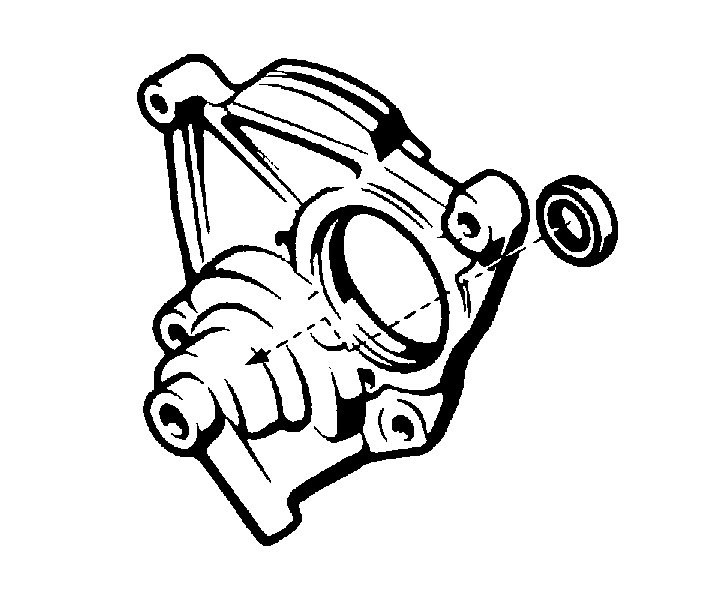|
|
Tips and Tricks |
Uncountable are the
curses of Max amateur craftsmen who tried to change the Simmerring® in the bearing
shield. The installation of a new Simmerring® 's no problem, but first you have
to remove the old.
Today most hobbyists is an inert
gas welding device. At least one knows one has one. With such a protective gas
welder is the expansion of Simmerings® for pure joy. And it goes like this:
 First
they removed with a knife or the like the rubber or plastic inner parts of the
old Simmerring®. Then welded to the protective gas welder already mentioned a
thin metal strips (0.7 to 1 mm thick, 10 mm wide) of the remaining metal ring of
the old Simmerring®. This now has two effects:
First, the heat introduced dissolves the tight fit of Simmerrings® and secondly
, one now has a "handle" on which you can pull out the old Simmerring®. If one
example clamps the welded sheet metal strips in a vice , so dissolves lightly
with a hammer every Simmerring® in no time.
First
they removed with a knife or the like the rubber or plastic inner parts of the
old Simmerring®. Then welded to the protective gas welder already mentioned a
thin metal strips (0.7 to 1 mm thick, 10 mm wide) of the remaining metal ring of
the old Simmerring®. This now has two effects:
First, the heat introduced dissolves the tight fit of Simmerrings® and secondly
, one now has a "handle" on which you can pull out the old Simmerring®. If one
example clamps the welded sheet metal strips in a vice , so dissolves lightly
with a hammer every Simmerring® in no time.
For the bearing shield
this expansion method is very gentle. Since aluminum is a good conductor of
heat, it nothing happens, even if the iron glows Simmerrings® locally. Careful
work is of course a prerequisite. Very proven automatic welding helmet , which
only darkens the ignition of the arc has this (but which welder I'll tell you
that. Anyone who has worked so again, the do not ever want another).
After
the old Simmerring® is now finally out of the bearing plate out, it comes to the
installation of the new. I recommend the execution "rubber outside" to use. (At
Freudenberg "SIMRIT" called this version "BA" , other manufacturers may be
different.) In these Simmerrings® the metal support ring
is complete , including the outside, rubber or plastic coated.
Besides the spring one sees no metal in these Simmerrings®.
This soft outer surface they seal better in the hole and can also be mounted
easily. These benefits are likely to be worth the small fee.
Before
installation make sure you clean in any case, the receiving bore in the bearing
plate carefully and if necessary, the edge deburring.
Best method (specified
by the manufacturer!) For installation: On a mechanical or hydraulic press of
Simmerring® is a special ram pushing on the base between the outer ring and lip
pressed.
Second best method for mounting (for hobbyists): The Simmerring with
a spike of hardwood or soft metal (copper, aluminum), which is slightly larger
than the outer diameter of the Simmerring, hit with careful hammer blows.
Third best method (botch, guaranteed again soon leaking): The Simmerring®
with a thin spine, etc. By Driver hit by blows to the outer edge.
So, now
no longer say that he could not get out of the bearing shield the Simmerring®.
Note:
Simmerring® is a registered trademark of Carl
Freudenberg , Weinheim. Actually they're called radial shaft seals. Note: As the
only Cognac from Cognac to Cognac allowed to call, then only the radial shaft
seals from Freudenberg shaft seals Simmering® may call.
© Andreas Mehlhorn, veröffentlicht im MAXFAHRER 2/96